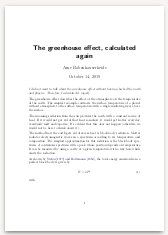A GNU Hurd development environment
I am finally working on Hurd-Projects again. Here I am describing my setup for hacking on the Hurd.
Setting up a VM
Firstoff: see the setup instructions for qemu. Here I only describe what I need myself.
wget https://cdimage.debian.org/cdimage/ports/latest/hurd-i386/debian-hurd.img.tar.gz tar -xz < debian-hurd.img.tar.gz
Simple tooling: start the VM and connect to it
I structure my hurd setup into two scripts: run-hurd.sh and login-to-hurd.sh.
start
My Hurd VM is started with ncurses interface to avoid qemu
interference with my Keyboard layout. If you use quert*, leave out the
--curses.
qemu-system-x86_64 --enable-kvm -m 5G -drive cache=writeback,file=$(echo debian-hurd-*.img) \ --device rtl8139,netdev=net0 --netdev user,id=net0,hostfwd=tcp:127.0.0.1:10022-:22 --curses
I copied this into the script ./run-the-hurd.sh.
Note the hostfwd: this provides ssh login via port 10022 (copied from the Guix Hurd setup).
login
Login is simple:
ssh -p 10022 root@localhost || echo "if ssh cannot connect, run inside the vm ssh arne@192.168.2.105 -p 22 -- cat '~/.ssh/id_rsa.pub' >> ~/.ssh/authorized_keys"
I copied this into the script ./login-to-the-hurd.sh.
Note the error handling: For this to work, you must add your public ssh key to the authorized keys. That provides minimal security.
usage
I start the hurd with
./run-the-vm.sh
Then I login in a second shell with
./login-to-the-hurd.sh
Development tooling
login to and from the VM
I want simple synchronization between VM and Host, so I’m settting up SSH keys on both sides. The ssh-setup for the VM is above. The following allows me to login from the Hurd VM to my host machine:
echo -e "\n\n\n" | ssh root@localhost -p 10022 -- bash -c \ 'ssh-keygen >/dev/null ; cat ~/.ssh/id_rsa.pub' >> ~/.ssh/authorized_keys echo ssh root@localhost -p 10022 -- ssh arne@192.168.2.105 echo test
If this prints test, the automatic round-trip works
To avoid using my username and host in here all the time, let’s add aliases.
# host to hurd alias echo ' Host hurd localhost HostName localhost User root Port 10022 ' >> ~/.ssh/config # hurd to host alias ssh hurd -- 'cat >> ~/.ssh/config' <<EOF Host host 192.168.2.105 HostName 192.168.2.105 User arne EOF ssh hurd -- ssh host echo test
Install the tooling
Login to the vm as above. I keep all specific stuff in ~/Dev. To install a fully working development environment, use:
Mercurial
This is what I use for version control of my own stuff.
mkdir -p ~/Dev cd ~/Dev apt install python3-dev wget https://www.mercurial-scm.org/release/mercurial-5.9.1.tar.gz tar xf mercurial-5.9.1.tar.gz cd mercurial-5.9.1 python3 setup.py install --user echo 'export PATH="${PATH}:${HOME}/.local/bin"' >> ~/.bashrc source ~/.bashrc
Git
To work with the Hurd git repos. My git install failed initially (didn’t find openssl), so I am using hg-git.
Update: The git install just works with the latest Debian GNU Hurd VM image.
cd ~/Dev apt install python3-dulwich hg clone https://foss.heptapod.net/mercurial/hg-git hg conf --edit # opens with vim: # - move to the bottom # - press o to add and edit a line # - write hggit = ~/Dev/hg-git/hggit # - write [ui] # - write username = Your Name <you@example.com> # - press ESCAPE :wq ENTER to save and exit
Update: After asking on IRC, paulusASol told me a working method to get git:
cd ~/Dev # get an old snapshot of git-man wget https://snapshot.debian.org/archive/debian/20210607T032400Z/pool/main/g/git/git-man_2.32.0-1_all.deb dpkg -i ./git-man_2.32.0-1_all.deb # install git apt install git
The Hurd repositories
cd ~/Dev for i in glibc gnumach hurd incubator libpthread mig procfs unionfs web; do # this uses my savannah useraccount. # It needs ~/.ssh/id_rsa.pub added to my account. hg clone git+ssh://arnebab@git.savannah.gnu.org:/srv/git/hurd/$i.git; done
Create a working translator
# get dependencies apt install autoconf automake mig # Enter the Hurd translator project cd hurd/ # build the translators autoreconf -i ./configure --without-parted make # Test the Hello World translator # -c creates the file. # Without it, you need to touch the file before. settrans -c ~/hello $(realpath trans/hello) cat ~/hello # Hello, world! # remove the translator again settrans -g ~/hello rm ~/hello
You can replace the translator during development with
settrans -g ~/hello $(realpath trans/hello)
Read the hurd-doc
For convenient access to documentation, install hurd-doc.
apt install hurd-doc
You can then read it with the info-reader of Emacs:
emacs -e info
Type m to choose a topic (i.e. hurd). Use CTRL-x CTRC-c to exit from Emacs. If something goes wrong, hit CTRL-g.
Use CTRL-s inside a topic to search. Repeat CTRL-s for full-text search inside the topic.
Sync with code on the host system for more convenient hacking
# in the Hurd cd ~/Dev/hurd hg clone . ssh://host/path/to/hurd-dev echo "[paths]\ndefault = ssh://host/path/to/hurd-dev" >> .hg/hgrc
Now you can hg pull -u and hg push to sync changes.
You can use any programming tool supported by the host system. Just commit it and pull from the hurd to try it out.
Create a non-root user for testing permissions-stuff
useradd -m user
Start hacking
You have the sources, and you can hack: Ready to try whatever you want to do.
